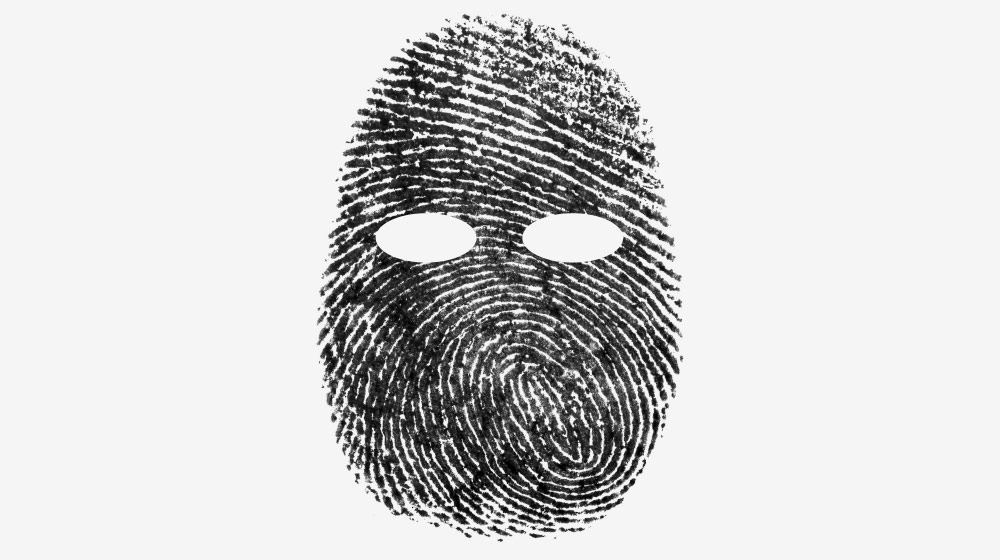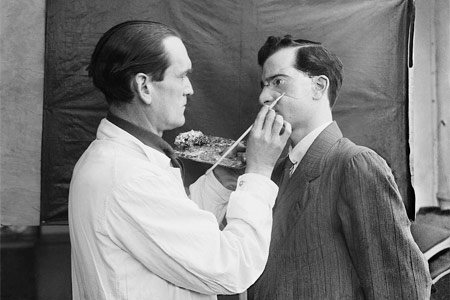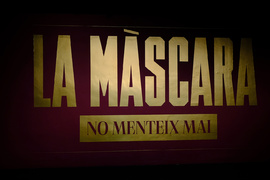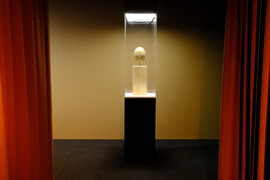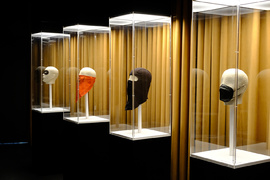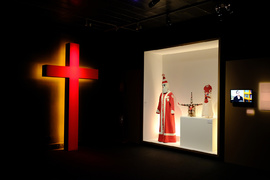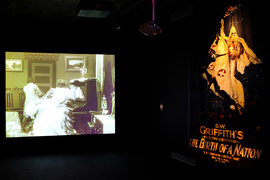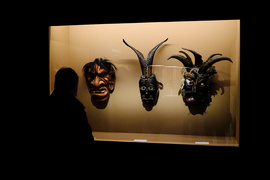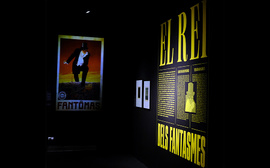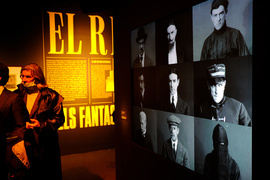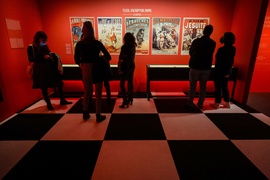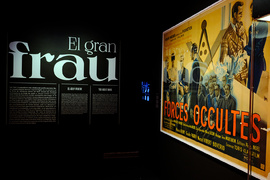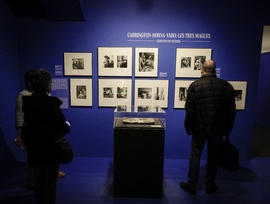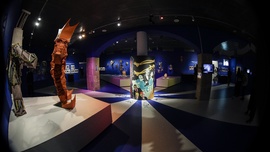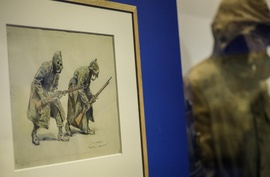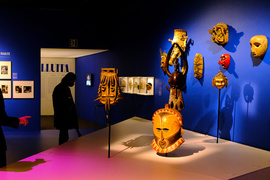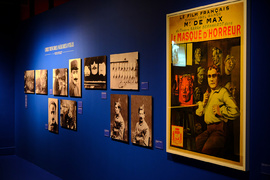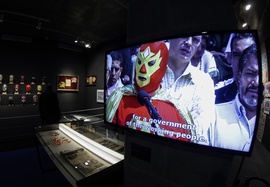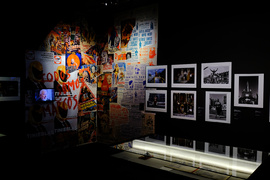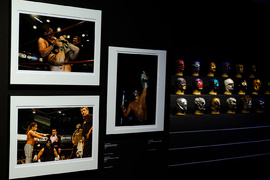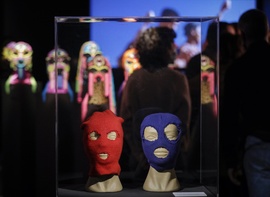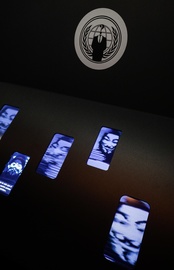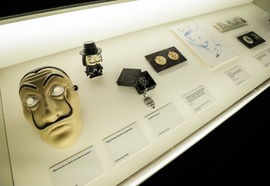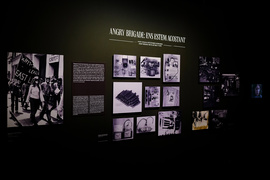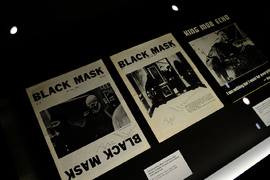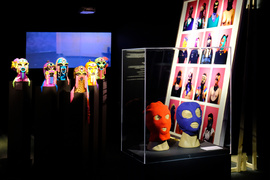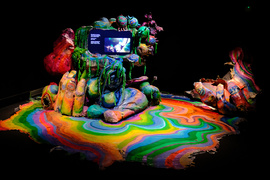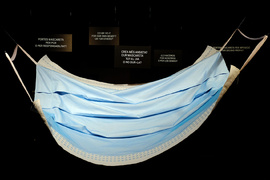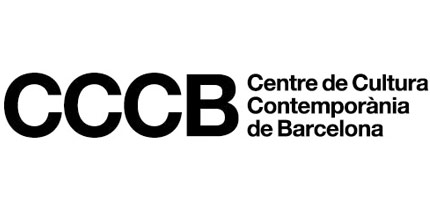Exhibition
The Mask Never Lies
The Mask Never Lies takes us on a journey through the political uses of masks in modern society and looks at the politics of how faces are controlled, cultural resistance to identification, the defence of anonymity, the strategies of terror in the act of concealment, and the way in which bad guys, heroes or heroines and dissidents use masks as a symbol of identity. Our world cannot be understood without masks and maskers, and even less so nowadays, when a pandemic has forced us to live behind them.
"Masks are used for us to communicate with the invisible, but they also have a subversive, clandestine component. Beneath them, protected by what is not seen, our identity remains secret and we are able to make our most forbidden desires a reality with some certainty. The mask isn’t the past, and neither does it lie".
Servando Rocha
Inspired by the essay Algunas cosas oscuras y peligrosas. El libro de la máscara y los enmascarados (Certain dark and dangerous things: The book of masks and the masked) by Servando Rocha, this exhibition offers an underground history of the last century and a half under the sign of a de-sacralised mask, one that infiltrates the political landscape as an instrument at the service of perverse exercises of power or as a tool for constructing identity in political activism and social struggles.
We see how, between the Ku Klux Klan and Pussy Riot, there is a heterogeneous repertoire of masked faces which conceal not only an identity, but also the origin of some of the phenomena that define our present day, such as fake news, conspiracy theories and the mechanisms of biopolitical control.
Set out in seven areas that constitute seven narratives – closed but with underground connections in the form of significant recurring themes and iconographies – The Mask Never Lies brings together a wide selection of documentary materials, audiovisual resources and objects that allow us to understand both the polysemy of the mask (Pussy Riot’s balaclavas, hoods from feminist protests, Mexican wrestlers’ masks, gas masks, Perchta masks from Austrian folklore, etc.) and the singularity of the various contexts in which the concealment of the face has taken on a political dimension (Masonic objects, the camera and chair used in Alphonse Bertillon’s anthropometric system, activist pamphlets, weapons).
Pieces by artists including Félicien Rops, Lavinia Schulz, Leonora Carrington, Kati Horna, Marcel Janco, David Lloyd and Lourdes Grobet sit alongside new artistic productions made expressly for the exhibition by Nico Roig, Martí Riera and Onliyú, José Lázaro, Joaquín Santiago, Fernando González Viñas, Dostopos, May Pulgarín (Tropidelia), Las Migras de Abya Yala (Jahel Guerra Roa and Lorena Álvarez Chávez), Domestic Date Streamers, Antoni Hervàs, Beatriz Sánchez and Gitano del Futuro.
Curators: Servando Rocha, Jordi Costa
Unmasking “The Mask Never Lies”
Related contents
Confusing The Machine: Art, Masks and Facial Recognition
Ferran Esteve
Masks have been used by artists and activists as a tool for offering resistance against facial recognition systems.
Beatriz Jaguaribe
Masks: ecstasy, anonymity and contagion
Based on the work of contemporary photographers, Jaguaribe analyze the extreme situations of contact and rejection to which anonymity in the street leads us. What identities does the mask configure in contemporary Brazil? How is masking expressed in its urban fabric?
